- DETERRENCE: Preparing for the Possibility of a North Korean Collapse
- DPRK: China Bans Certain North Korean Exports for Fear of Weapons Use
- ENERGY SECURITY: IPCC Head Warns on Himalayan Melting Glaciers
- GOVERNANCE AND CIVIL SOCIETY: With Reunion Cancellation, Seoul Rejects Tourism Talks
- CLIMATE CHANGE ADAPTATION: Public Risks and the Challenges to Climate-Change Adaptation: A Proposed Framework For Planning in the Age of Uncertainty
- CLIMATE CHANGE AND SECURITY: Haze: Asia’s New Weapon
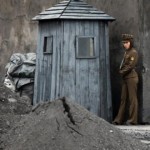 DETERRENCE: Preparing for the Possibility of a North Korean Collapse, B. Bennett, RAND, RR-331-SRF, Santa Monica, 2013
DETERRENCE: Preparing for the Possibility of a North Korean Collapse, B. Bennett, RAND, RR-331-SRF, Santa Monica, 2013
Bennett examines the implications of an assumed DPRK government collapse at an unspecified time. He concludes that the US-ROK must prepare to intervene militarily in the North to unify Korea when such collapse occurs, to deliver aid, stop fighting, to demilitarize the DPRK, secure WMD, and avoid collision with Chinese forces.
- Thinking About The Thinkable: DPRK Collapse Scenarios Redux, Peter Hayes, NAPSNet Policy Forum, September 24, 2013
- CIA Intelligence Report, Exploring the Implications of Alternative North Korean Endgames: Results for a Discussion Panel on Continuing Coexistence Between North and South Korea, January 21, 1998 released under FOIA (redacted partly)
- Catastrophic Collapse of North Korea: Implications for the United States Military, D. Maxwell, Army Command And General Staff College, Fort Leavenworth, May 1996
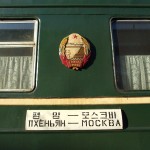
DPRK: China Bans Certain North Korean Exports for Fear of Weapons Use, Jane Perlez, New York Times, (24 September 2013)
North Korea’s demonstrations of sovereignty incur costs borne by average North Koreans and their senior leadership appears willing to pay that price. China promulgated 236 pages of items in the nuclear, missile, chemical and biological fields that are prohibited from being transferred to North Korea. North Korea also detained a Russian fishing vessel even though Russia just opened a rail line between Russia and Rajin port.
- S. Korea Slams DPRK’s Delay of Family Reunion, Yoo Seungki, (China) Xinhuanet, (21 September 2013)
- Russia, China go Head-to-Head with Development of North Korean Port, Daisuke Nishimura, Asahi Shimbun (24 September 2013)
- Russian Federation Foreign Ministry asks North Korea for Clarification Over Fishing Boat Incident, ITAR-TASS News Agency (21 September 2013)
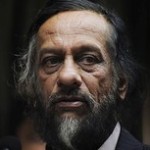 ENERGY SECURITY: IPCC Head Warns on Himalayan Melting Glaciers, Pilita Clark, Financial Times (22 September 2013)
ENERGY SECURITY: IPCC Head Warns on Himalayan Melting Glaciers, Pilita Clark, Financial Times (22 September 2013)
Acknowledging the limitations in scope of the forthcoming IPCC report, a confident Chairman Pauchari reaffirmed his belief that rational people and leaders will respond appropriately to the soon to be released scientific assessment and responds to climate change skeptics and the campaign to discredit the report before it is released. Lord Stern calls climate change dissenters “irrational” and opines,“ we need to approach the issue as one of risk management.”
- IPCC chairman dismisses climate report spoiler campaign, Suzanne Goldenberg, Guardian [19 September 2013]
- World leaders must co-operate on talks for strong new climate change deal, Nicholas Stern, Opinion, Observer (UK) [21 September 2013]
- Leading climate change scientist brands sceptics ‘irrational’: Lord Stern says governments should treat as ‘just noise what sceptics say on climate change, Fiona Harvey, Guardian [24 September 2013]
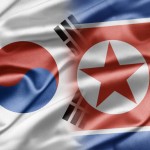 GOVERNANCE AND CIVIL SOCIETY: With Reunion Cancellation, Seoul Rejects Tourism Talks, Kim Hee-jin, Joongang Ilbo (24 September 2013)
GOVERNANCE AND CIVIL SOCIETY: With Reunion Cancellation, Seoul Rejects Tourism Talks, Kim Hee-jin, Joongang Ilbo (24 September 2013)
Relations between the ROK and DPRK have stalled again, with the DPRK postponing inter-Korean reunions and the ROK stating that it will not discuss the reopening of the Mt. Keumgang resort until reunions are rescheduled. The DPRK blamed the ROK media’s claims that “trustpolitik” had changed the regime’s behavior and criticized the arrest of a ROK lawmaker with alleged DPRK ties. Six party talks don’t appear likely anytime soon, despite pressure from the PRC.
- Family Reunions Postponed, Straining Inter-Korean Ties, Lee Joon-seung, Yonhap (21 September 2013)
- Korean Family Reunions Become a Pawn in Cold War Politics, E. Tammy Kim, Al Jazeera (23 September 2013)
- N. Korean Call for New Nuclear Talks Prompts Weary U.S. Response, Chosun Ilbo (19 September 2013)
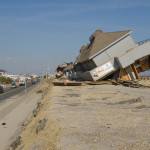 CLIMATE CHANGE ADAPTATION: Public Risks and the Challenges to Climate-Change Adaptation: A Proposed Framework For Planning in the Age of Uncertainty, Philip Berke and Ward Lyles, A Journal of Policy Development and Research, vol. 15, no. 1 (2013)
CLIMATE CHANGE ADAPTATION: Public Risks and the Challenges to Climate-Change Adaptation: A Proposed Framework For Planning in the Age of Uncertainty, Philip Berke and Ward Lyles, A Journal of Policy Development and Research, vol. 15, no. 1 (2013)
Public risks pose the generic difficulty of creating and sustaining public support and action. Devising strategies for dealing with public risks generated by climate change requires a rethinking of the traditional predict-and-plan approach used in most of contemporary planning practice. The accelerating rates of change and increasing levels of future uncertainties associated with climate change are not well suited to the traditional approach. The risks are too uncertain, diffuse, temporally remote, and indirect to assign blame and attach responsibility.
- Integrating Hazard Mitigation Into New Urban And Conventional Developments, Philip R. Berke, Yan Song and Mark Stevens, Journal of Planning Education and Research, vol. 28, no. 4, pp. 441-455 (2009) [subscription required]
- Public Perception Of Hurricane Hazards: Examining The Differential Effects Of Hurricane Diana, Timothy Beatley and David Brower, Coastal Zone Management Journal, vol. 14, issue 3, pp. 241-268 (1986) [subscription required]
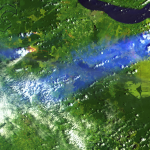 CLIMATE CHANGE AND SECURITY: Haze: Asia’s New Weapon, Robert Hathaway, The Globalist, September 8, 2013
CLIMATE CHANGE AND SECURITY: Haze: Asia’s New Weapon, Robert Hathaway, The Globalist, September 8, 2013
Haze may be the new weapon of mass destruction. Smoke from burning forests and peat on Sumatra moved east to envelope Singapore and Malaysia. Until state oversight capacity is enhanced, Indonesia will almost certainly fail in surmounting its haze challenges even when the political will exists. Yet top-down responses are seldom sufficient for dealing with a threat of this nature. Nearly every country in the region is upping its arms spending.
- Nearly a Quarter of June Fires in Indonesia Occurred in Industrial Plantations, David Gaveau and Mohammad Agus Salim, CIFOR (Center for International Forestry Research), Thomson Reuters Foundation (30 July 2013)
- LANCE – FIRMS Web Fire Mapper, NASA
- Today’s Weather Forecast, Brought to You by China? Frank Konkel, FCW, 5 September 2013
The Nautilus Peace and Security Weekly Report presents articles and full length reports each week in six categories: Austral security, nuclear deterrence, energy security, climate change and security, the DPRK, climate change adaptation and governance and civil society. Our team of contributors carefully select items that highlight the links between these themes and the three regions in which our offices are found—North America, Northeast Asia, and the Austral-Asia region.
Subscribe to NAPSNet to receive free weekly email reports
Editor
- Saegan Swanson (while Arabella Imhoff is on leave)
Contributors
- Deterrence: Peter Hayes
- Governance and Civil Society: Dyana Mardon
- Climate Change Adaptation: Saleem Janjua
- DPRK: Roger Cavazos
- Energy Security: Nikhil Desai
- Austral Peace and Security: Richard Tanter

